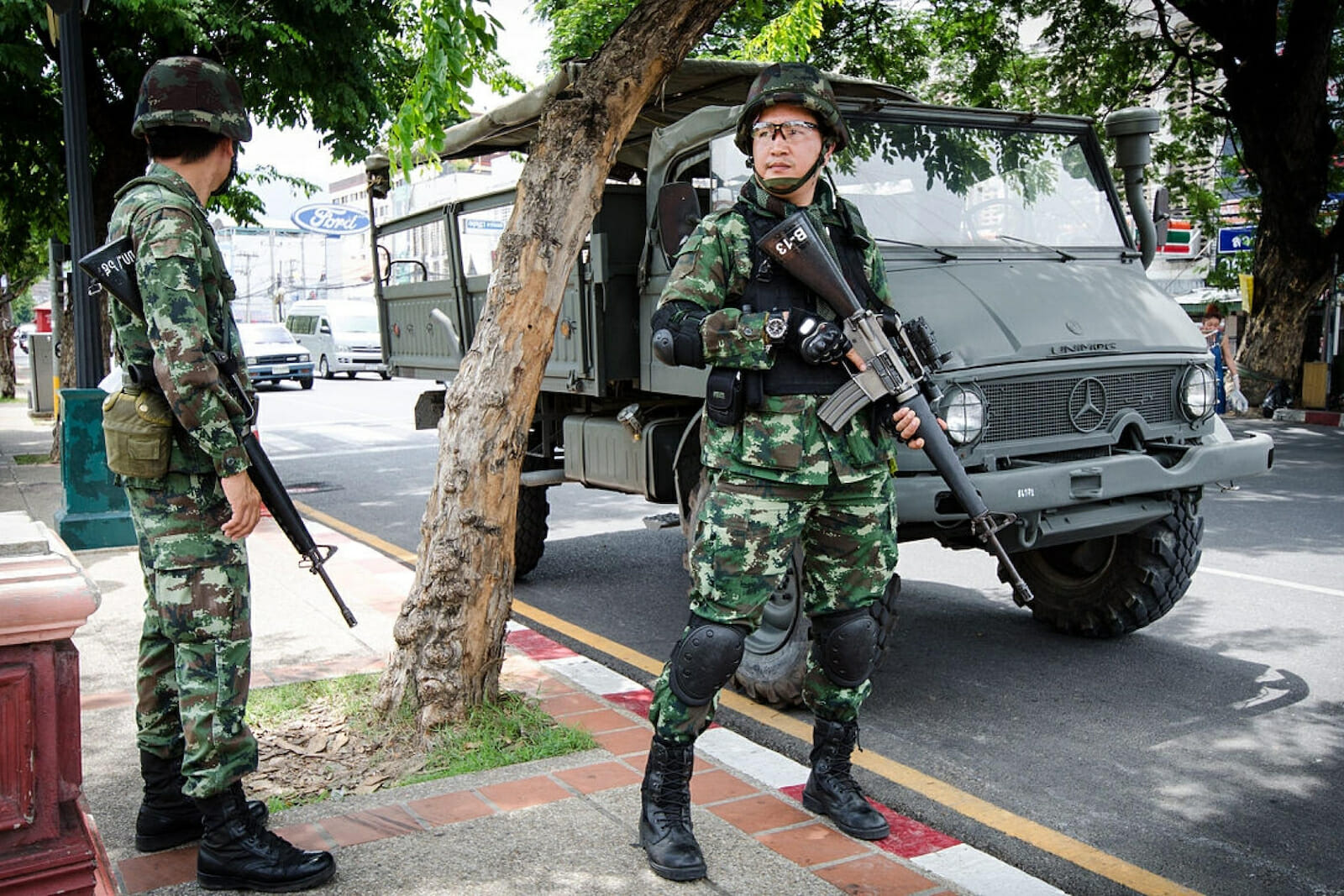
Dim Prospects for Peace in Southern Thailand
Since February of this year, the Malaysian government has sponsored talks in Kuala Lumpur (KL) with the aim of ending the bloodshed that has plagued southern Thailand for nearly a decade.
At the negotiating table are Thai government officials and the rebel group Barisan Revolusi Nasional-Coordinate (BRN-C). The talks have, thus far, failed to achieve their objective, as there remains a wide gap between both sides’ demands. The absence of leadership or political cohesion within the insurgency raises the question about which rebels are being represented in KL, and to what extent the BRN-C fully represents or can influence all entities that comprise the insurgency. Events on the ground indicate that the insurgency has entered a new phase of enhanced violence and human rights abuses that now target children. Within this context, prospects for success in KL appear dim.
Three-quarters of Thailand’s population is ethnically Thai and 95% are Buddhist. Yet, in the southern provinces of Narathiwat, Pattani, Satun, and Yala the majority of citizens are ethnic Malays who practice Islam. All of the provinces, except Yala, were previously governed by the Malay-Muslim sultanate of Pattani, which ceased to exist after the state of Thailand (then known as “Siam”) annexed the territory over a century ago.
While under Bangkok’s rule, many Muslims in southern Thailand have complained of an oppressive and corrupt political order that suppresses their ethnic, religious and linguistic identities, while subjecting them to second-class citizenship and marginalization.
The Muslim-majority provinces of southern Thailand are indeed the poorest in this comparatively rich nation. Since the 1960s, a number of Malay-Muslim currents have resisted Bangkok’s control over southern Thailand in pursuit of the re-establishment of an independent state based on the Malay-Muslim identity. In 2004, an insurgency grew under the banner of jihad, symbolizing a new Islamist identity of the Pattani people.
The majority of rebel offensives are waged by autonomous units of Islamist fighters. While the objectives of all the insurgent groups are unclear, the establishment of a Malay-speaking Muslim state between Thailand and Malaysia is a unifying goal. If the peace talks were to conclude with a deal that offers the Malay-Muslims anything short of total independence from Thai rule, it is doubtful that most of the insurgents would agree to lay down their arms. At the same time, no one expects Bangkok to support any deal that entails the partition of the existing Thai nation-state. In this regard, both sides’ demands appear fundamentally incompatible.
As the violence has continued unabated, serious doubts exist over the BRN-C’s influence on the ground in southern Thailand. A younger generation of Islamist fighters are less inclined to accept an olive branch and are skeptical of any agreement with Bangkok. The exiled leader of the Pattani United Liberation Organization (PULO) — another separatist group — has taken responsibility for some recent attacks, declaring that such violence will continue given that the PULO was not invited to join the BRN-C in KL. In the absence of a higher degree of confidence about the BRN-C’s influence on the ground and legitimacy as the representative of the insurgents, and given the expansion of the list of “legitimate” targets by some of the insurgents to include Thai-Buddhist children in southern Thailand, the KL talks are effectively dead.
A breakthrough in KL could become more realistic if the insurgents were to unite behind a single leader, as have some Islamist militants in the Arab world. However, the decentralized structure of the insurgency indicates that this is an unlikely outcome. In fact, many in the BRN-C do not even know the names of their superiors or fellow unit members. Unless the insurgents can establish themselves as a cohesive entity operating under a specific leadership with defined objectives, it will be difficult for the BRN-C leadership in KL to guarantee that the Malay insurgents will agree to any commitments made at the negotiating table. Based on this, a stalemate is the most likely near-term outcome of the KL talks.
Fortunately for Thailand, and the Thai government, the Islamist insurgents have not expanded their attacks beyond the Muslim-majority provinces of the south of the country, and have basically spared Thailand’s tourism industry. The Thai government does not, therefore, view the Islamist insurgency as a grave threat to the national economy. If the conflict were to spread into the north, the dynamics at play would change, as would Bangkok’s approach. As it stands now, the Thai government may calculate that a continuation of the insurgency is preferable to any major concessions that would be necessary to placate the more hardline elements of the insurgency.
The insurgency in southern Thailand has claimed more than 5,000 lives in the last ten years, making it Southeast Asia’s deadliest ongoing conflict. It is also one of the world’s most unusual insurgencies, given that it is being waged between two comparatively wealthy nations – standing in stark contrast to conflict in and among failed states, such as Afghanistan, Mali, Somalia, and Sudan. Yet, southern Thailand is becoming increasingly ungovernable.
By agreeing to sit down the BRN-C in Malaysia, the Thai government has for the first time given the rebels a degree of legitimacy, yet, to date, Bangkok has received no tangible benefits as a result. Compromise does not appear to be in the lexicon of some insurgent groups, who have demonstrated a commitment to derailing the peace process and pursuing their armed struggle against the Thai government. The prospects of success at the negotiating table are therefore negligible, which does not bode well for the people of the region or the Thai government in the longer term.


